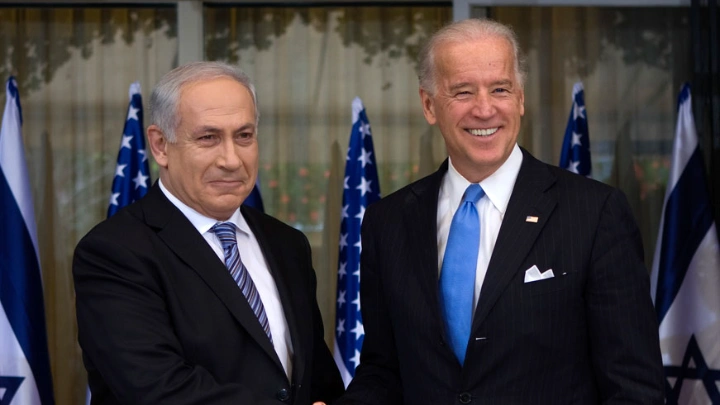Biden’s legacy in the Middle East has been characterised by his unwavering support for Israel, ushering a comparative paradigm tracing back to his predecessors, most significantly Truman, who recognised Israel as an independent state in 1948. The core reasons for historically strong US support for Israel have been the Jewish population’s history of persecution and for America to secure a democratic ally in the Middle East in a strategically volatile Gulf. Another explanation of America’s support for Israel can be traced back to Mearsheimer and Walt’s ‘The Israel Lobby’ (2007). The theory conjectures that Bush’s war on Iraq (2002) was to secure Israel’s, and by extension, America’s position in the Middle East, given Iraq’s history of conflict with Israel and Saudi Arabia. A pro-Israel policy is a legacy that Biden inherited but what he leaves behind for the next administration is critical.
America, since the 1970s, has provided billions to Israel in military aid and will continue to do till 2028, backed by a Congressional Understanding. Since 2021, Biden's policy focus in the region has been to develop a Middle-East ‘security network’ by way of which Israel has some regional assurances. This network, which primarily involved the UAE, Saudi Arabia, and Jordan, assisted Israel in intercepting the attacks on it by Iran in April this year. Yet, Israeli ground actions in Gaza and now inside Lebanon have become progressively less controllable by Biden. The Israeli decision to conduct a precision strike inside Beirut to kill Hassan Nasrallah was conveyed to U.S. Secretary of Defense Llyod Austin after the Israeli jets had scrambled, irking the Biden administration. A prerequisite for building a security cushion inside the Middle East requires consistency and trust, both of which are absent in the current Israel-US conversations. This may be because there is a fundamental divide in the vision and end goal that both DC and Tel Aviv seek in the region. For Biden, a lame-duck president, peace in the region through a ceasefire may be his last moonshot at a legacy. For Netanyahu, his cabinet’s push to reshape the Middle East by establishing a long-lasting deterrence weighs heavier. Between an escalation of dominance in the region by Israel and the creation of the Palestinian state lies the danger of a regional war which seems the most immediate possibility.
What has added to Biden’s conundrum is the US’ successively depleting control over other Middle-East powers such as Iran. Trump’s withdrawal from the JCPOA (Joint Comprehensive Plan of Action) was a lost opportunity for the Biden administration. Subsequently, the question of what could a nuclear Iran mean for the region has grown starker for US allies in the region—Israel and Saudi Arabia—which seek their own security guarantees from the US. Resultantly, under Biden’s presidency, Iran’s violation of IAEA’s terms notwithstanding, Netanyahu, Tehran, and Riyadh have all wrangled with DC on whether the JCPOA should be revived. Now that Iran has attacked Israel twice within months, that conversation has been further relegated.




